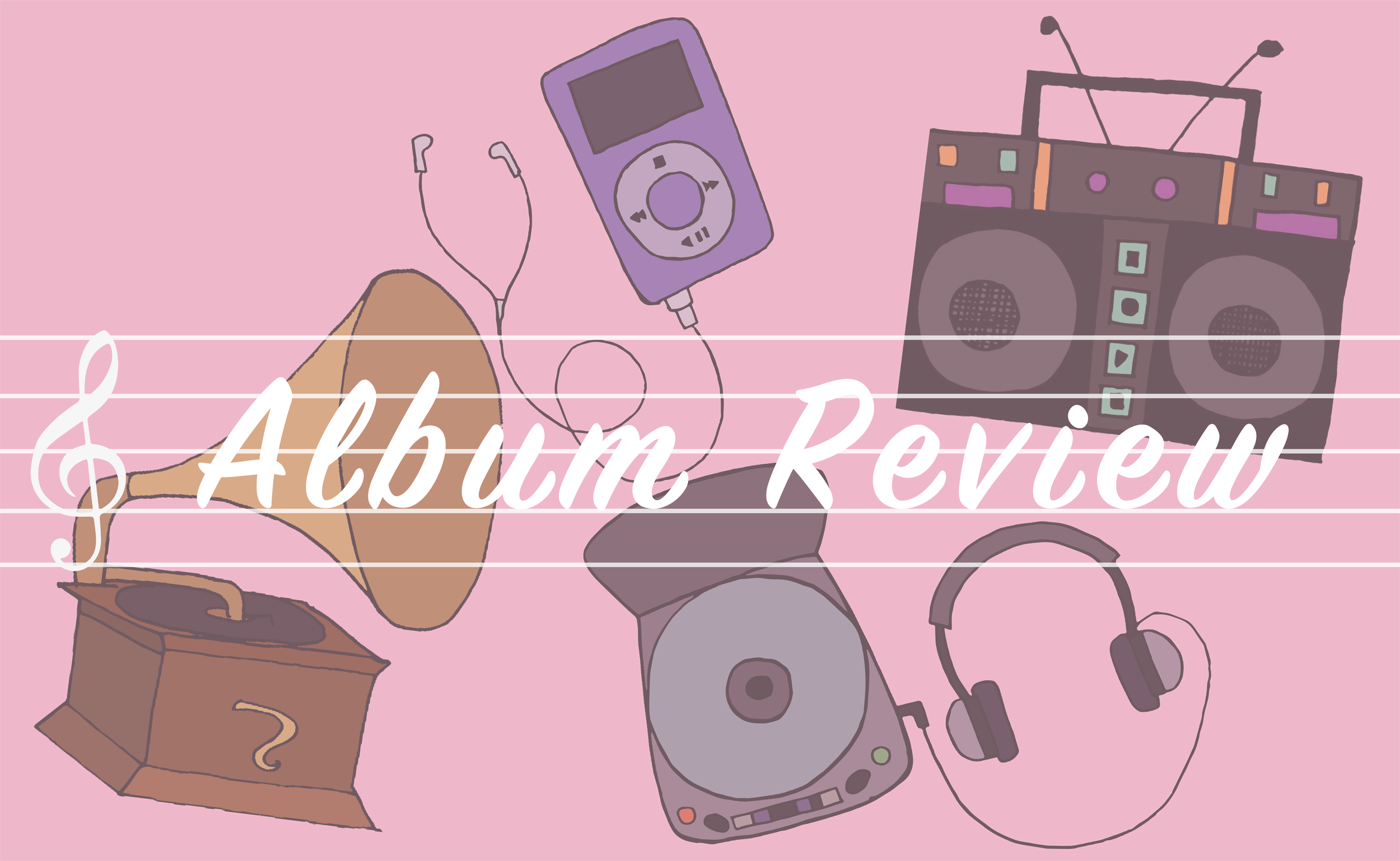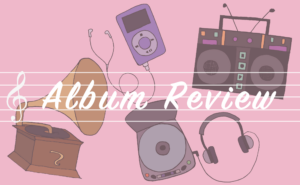Content warning: brief mentions of sexual assault, homophobia, and antisemitism
Imagine if you had a dollar for every time you were told Kanye West’s Donda was going to come out “this weekend.” You would have a lot of money by now, as the album has been delayed again and again: but against the expectations of many, the album has arrived and is (hopefully) in full this time.
Donda’s promotion began last year when West tweeted “NEW ALBUM DONDA COMING JULY 24 #2020VISION” with what was assumed to be a tracklist consisting of twenty songs. The final product clocks in at 27 songs, with a runtime of an hour and 48 minutes, and only eight of the songs on the original Twitter image have found their way to the final album tracklist. Spoiler alert: Donda didn’t release on July 24, 2020. In fact, it didn’t release on July 24, 2021, either.
On July 22, Kanye West hosted a “listening event” for Donda, which lasted less than an hour and previewed unfinished versions of several songs. He hosted a second one on August 5, which was roughly the length of the final album and felt much more polished. The third and final listening party came after West had posted cryptic Instagram posts and submitted a request to legally change his name to “Ye.” There were many guests attending, including the currently under-fire Marilyn Manson and Dababy, who appear on the track “Jail pt 2.” Ex-partners, coworkers, and others have publicly accused Manson of sexual violence and abuse in the last couple years, while Dababy has been facing public scrutiny for the homophobic and counterfactual comments he made at Rolling Loud in July. It is possible that West is implying that the criticism he faces is similar to the criticism faced by the two artists, considering the content of their featured song. Regardless, their participation in this event has left many with a bad taste.
Donda is the name of Kanye West’s late mother, who passed away in 2007. Her words can be heard on the interlude “Donda,” as she discusses her son and the impact he has had on herself and on the rest of the world. The ending of the track includes gospel vocals from The World Famous Tony Williams and West’s own Sunday Service Choir. This interlude contains the heart of Donda: Kanye West’s use of Christianity as a defense mechanism.
This theme is prevalent on the second track “Jail,” featuring JAY-Z. The solid bass grooves on the track protest the holier-than-thou guitars that play non-stop throughout the entirety of the song (sonic dark-light dichotomy is a common motif found on the record, making it reminiscent of his 2016 album, The Life of Pablo). On the song, he laments the hypocrisy of the media and his critics, saying “priors, do you have any priors? Well, that one time. I’ll be honest, I’ll be honest, we all liars.” He also calls out cancel culture: “I scroll, I scroll up like, ‘Next’ Guess who’s getting ‘exed.”
Cancel culture and criticism are running themes throughout West’s music, but as he has adopted a more religious lifestyle in recent years, he uses that to reconcile his actions and society’s reception to them. This is reinforced by the track “Jesus Lord,” where we find him rapping the words “Man, it’s hard to be an angel when you surrounded by demons.” The song features Jay Electronica, who was under fire last year for making antisemitic remarks.
At the end of the song, there’s a long-winded voicemail from Larry Hoover Jr., whose father was the founder of the Gangster Disciples, a Chicago-based crime organization. Larry Hoover Sr. is currently serving six life sentences for murder, conspiracy, money laundering, and running a ciminal enterprise, and his son laments in the voicemail how his incarceration has negatively affected their family for generations. This ties into the theme of Donda by way of West defending his actions (this time his meeting with Donald Trump to pardon Larry Hoover Sr.) for the sake of those who “need Jesus.”
Importantly, West also creates a dichotomy between “dark” and “light.” On “Hurricane,” The Weeknd croons “all lights out for me,” his reverbed voice echoing throughout the desolate canvas of the track. A bass-heavy beat begins to emerge, as Tesfaye’s voice remains at a high level, coupled with an organ in the background. Lil Baby joins, continuing to push it forward with the organ rising higher and higher, and the bass digging deeper and deeper. The next song “Praise God” continues this with a background choir providing the “lightness,” while again, a jumping bassline gives in to the “darkness.”
This creates a sort of tension throughout Donda, a tension that West probably feels within himself. Etched on the cover of ye (2018), West proclaims “I hate being bipolar; it’s awesome.” Emotionally heavy events such as losing a mother, getting divorced, and losing the candidacy for president can propel internal grief and conflict. This tension is explored not only sonically, but with lyrics all over the album. West feels many contradictions on Donda, and he disputes his own behavior on tracks like “Off the Grid” and “Hurricane.”
While West has moments of cynicism on this album, there is also a great amount of inspiring positivity that can be found. The song “Junya” features West and Playboi Carti rapping over a bass heavy beat, bragging about their wealth and status. The song will not fail to have you banging your head up and down for its entire two and a half minute runtime. Following that, there’s the song “Believe What I Say,” which features a subtly superb sample from Lauryn Hill’s “Doo-Wop (That Thing).” Fans of The Miseducation of Lauryn Hill will love this song, but even beyond that, it has many great moments. West sings on the chorus, “Don’t let, don’t let the lifestyle drag you down! Who knows when was the last time you felt the love!” West’s singing is noticeably impressive on “Believe What I Say” and on Donda as a whole. Songs “24,” “Pure Souls,” and “Come to Life” demonstrate this even further.
“Believe What I Say” blossoms into a jubilant pronouncement of reaffirmation and security, highlighted by the Lauryn Hill sample. This song is followed by the even more uplifting “24,” which is certainly a favorite on the album. It radiates the energy of his triumphant 2018 hit “Ghost Town,” with a similar production to his gospel anthem “Ultralight Beam.” West repeatedly announces “we gonna be okay!” while his Sunday Service Choir provides hair-raising vocals in the background. Short but sweet, these songs fit in nicely with the hankering “Moon.” While aptly featuring Kid Cudi, the song is defined by Don Toliver’s soft, yet powerful proclamations. The song only leaves listeners wanting more—which leads to the fundamental issue with the album.
West’s contributions to some of the songs on Donda can be very miniscule. Of course, he did an outstanding job producing the entire record, as that is where his true artistic vision and ability lies. But some songs feature few vocal contributions from West. “Tell the Vision” does not have any at all. Even bangers like “Hurricane,” “Ok Ok,” and “Keep My Spirit Alive” see West max out at only one verse and a few ad-libs. Not to say that these songs are not great, but there are some points where Donda can fail to feel like a Kanye West record.
Despite this, the features are great on this album. Vory’s vocals make “Jonah” what it is, and provide great backup on “God Breathed” and “No Child Left Behind.” Travis Scott and Baby Keem bring their A-game on “Praise God,” and seeing Griselda appear on “Keep My Spirit Alive” was a pleasant surprise. It is also worth mentioning that Pop Smoke’s feature on “Tell the Vision” proved to be fairly bland, yet again demonstrating how young musicians are sucked of their music’s lifeblood in posthumous releases.
There are excellent songs on the tracklist, but there are also a few duds that are not necessary for the project, especially considering its length. Tracks like “Remote Control,” “Tell The Vision,” or even the smash “Junya” seem to serve no real purpose to the advancement of the motifs, themes, or general vibes of Donda. Another less enticing aspect of the album is the “remixes” (if you can even call them that) toward the end. Some of them, like “Junya pt 2” and “Jesus Lord pt 2” are simply extended versions of the original songs, and they really sour Donda and soften its impact.
There is no doubt that West has experienced profoundly uplifting moments and conviction due to his faith. On “New Again,” we again see him defending his actions with spirituality. The thumping electronic production and flows made me double check to make sure I wasn’t listening to West’s 2007 record Graduation. The next song “Lord I Need You”—I’m just gonna act like “Tell the Vision” isn’t there—is a mellow heartfelt love letter to Kim Kardashian. While short, the song is a reflection of the pain West has felt in the last year. Divorce is not easy for anyone, especially not for someone with an unpredictable and unstable mental state.
Aside from that, he still is evidently reeling from the pain of his mother’s death. The intro track, “Donda Chant,” straps the audience in for the nearly two-hour-long ride that is the album. West enlists Syleena Johnson to repeatedly utter the name “Donda.” The track’s abstractness represents the album cover in a way. Dark. Desolate. Desperate. Donda. Minimalism isn’t foreign to him (see his Yeezy clothing line and his discography since 2016). Even his sonically maximalist records Yeezus (2013) and My Beautiful Dark Twisted Fantasy (2010) sport minimalistic covers. Perhaps this is an indication of West reaching some singularity in his music, or even his artistic vision in general. Perhaps it is his acceptance of his mother’s death, whether achieved through religion or art.
The final two tracks, “Come to Life” and “No Child Left Behind,” share a similar sense of resolution. While many songs on Donda exhibit some related lyrical themes, these last two songs give some sort of closure to the dark/light tension felt throughout the album. West gets personal on “Come to Life,” where he repeatedly asks the listener, “Ever wish you had another life?” He opens up about dark points he has experienced, citing “Gotta make my mark ‘fore I’m gone… I don’t wanna die alone. I get mad when she gone.” Whether the “she” is in reference to his ex-wife or his mother, the point of the song is not to pigeonhole his pain into one singular event. In the background there can be a sermon or prayer heard, used as a sample to contrast the darkness in the lyrics with the illumination he finds in God. The ascension of West’s spirit is reflected in the crescendoing piano rising throughout the latter half of the track. The dark lyrics he recites are accompanied by an iron-hot electric guitar striking against the piano.
Donda was an excellent experiment in the art of album release. While it only hit streaming services a couple weeks ago, it felt like the album has been out for months. I would not put it past some people to say that this is West’s best work (although one may say that for almost any of his records). I certainly wouldn’t put it past myself. The lows on Donda are at worst below average, and at best an improvement on his recent efforts like Jesus is King (2019). This album has me excited for whatever is next in the world of Kanye West. While Donda did not bestow to me faith in God, it did restore my faith in Ye.
Voice’s Choices: “24,” “Jail,” “New Again”





